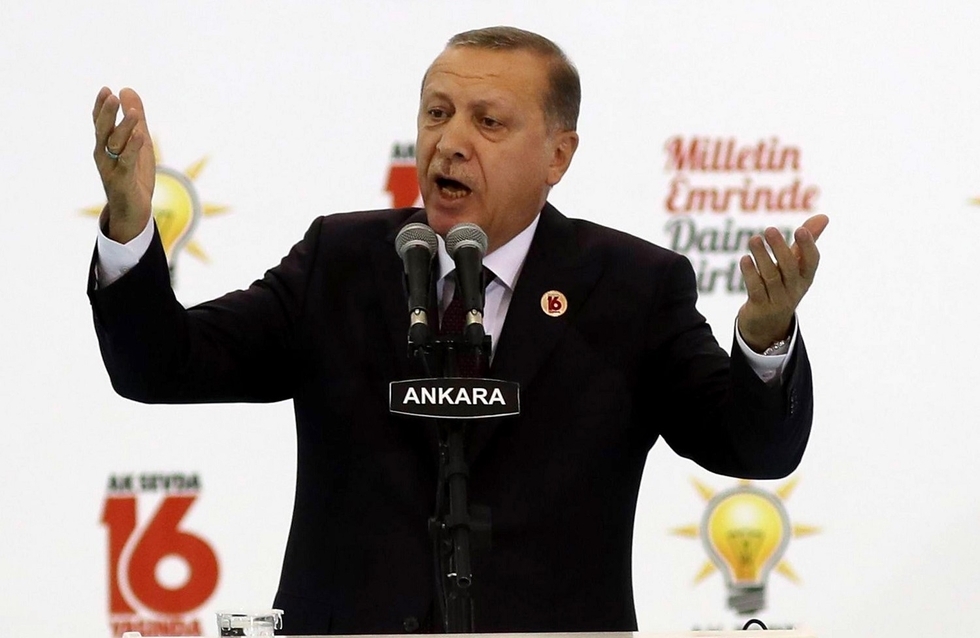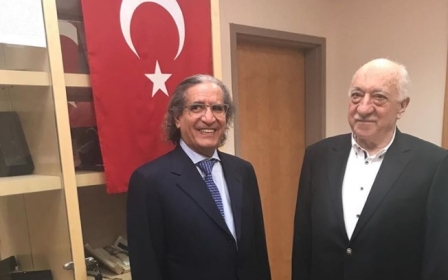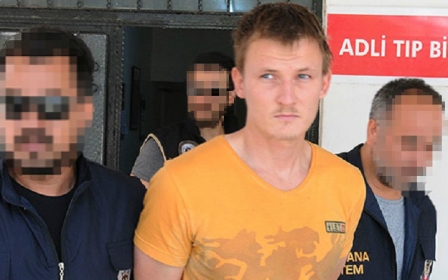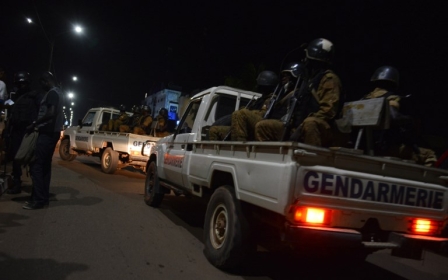Erdogan urges 'sweeping change' in Turkey's ruling party

Turkish President Recep Tayyip Erdogan on Monday urged "sweeping change" in the upper echelons of the ruling party ahead of 2019 elections, after it showed signs of weakness at the ballot box.
Turkey's ruling Justice and Development Party (AKP) was celebrating the 16th anniversary of its founding in 2001, for the first time since Erdogan returned to the job of party boss this year.
"Change is natural for the AKP, which was established to respond to Turkey's need for change. But now what we need is a sweeping change," Erdogan said in a speech outside Ankara marking the anniversary.
He said that "successful" colleagues - including MPs, mayors and regional party officials - would be able to stay in their jobs, but those who were showing "tiredness and weariness" would have to leave the party.
The Turkish president added that the "new process" was beginning regionally and would be finished by the end of February. Erdogan denied it was a "liquidation campaign" but said: "We need to be ready for 2019."
Erdogan co-founded the AKP as an Islamic-rooted party that would also strive to modernise the economy and push ahead with Turkey's EU membership bid.
It has never been defeated at the ballot box since first winning power in 2002, but there have been signs its grip on power has grown slightly less tight in the last years.
In the June 2015 parliamentary elections, the party lost its overall majority for the first time, although it clawed it back in snap November polls that same year.
And most alarmingly, Erdogan won the 16 April referendum on expanding his powers by a much narrower margin than expected, with 51.4 percent of the vote.
In the 2019 elections, the ruling party's "contract" with the Turkish people would be "renewed and, God willing, in the most powerful way," Erdogan said on Monday.
The November 2019 elections will see presidential and parliamentary polls held on the same day.
Afterwards, most of the changes agreed in the constitutional referendum will be implemented, including the liquidation of the office of prime minister.
One change implemented immediately was allowing the president to lead a political party. Erdogan had to leave the AKP when he moved from the office of premier to president in 2014, but swiftly took the job back after the referendum.
Supporters say the changes will streamline government in Turkey, but critics fear that they will lead to a one-man rule.
Turkey remains under a state of emergency imposed after the 15 July 2016 failed coup, which led to the biggest crackdown in the country's history.
In a show of solidarity, key party old guard members like ex premier Ahmet Davutoglu and former parliament speaker Bulent Arinc were present at the ceremony.
However, Erdogan's predecessor as president and AKP co-founder Abdullah Gul was again conspicuous by his absence.
New MEE newsletter: Jerusalem Dispatch
Sign up to get the latest insights and analysis on Israel-Palestine, alongside Turkey Unpacked and other MEE newsletters
Middle East Eye delivers independent and unrivalled coverage and analysis of the Middle East, North Africa and beyond. To learn more about republishing this content and the associated fees, please fill out this form. More about MEE can be found here.




